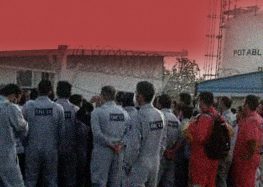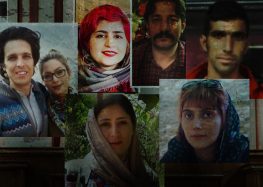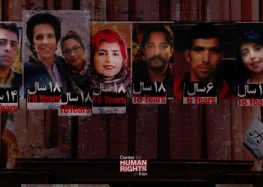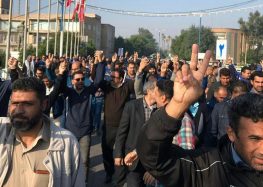Iranian Glue Company’s Rules Attract Scrutiny for Possible Rights Violations
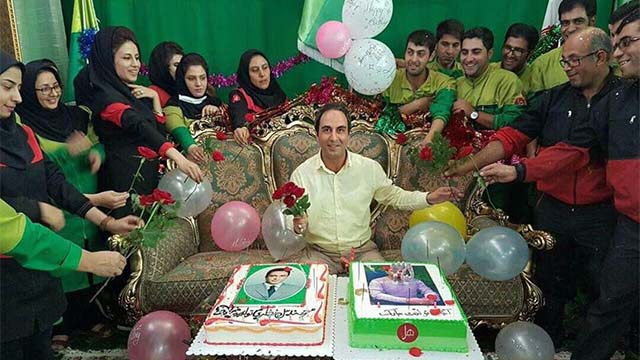
HL Glue company CEO Khalil Nazari surrounded by factory workers at his birthday party
The Ministry of Labor and Social Affairs has declared some workplace regulations at the HL Glue factory in Tabriz, East Azerbaijan Province, to be in violation of the Labor Law, including a requirement that all employees participate in Islamic group prayers. An Iranian human rights lawyer has also compared the company’s regulations to slavery.
“You can introduce rules that improve on what is required under the law,” Hossein Raeesi told the Center for Human Rights in Iran (CHRI) on August 19, 2017. “But what [CEO] Khalil Nazari has imposed at the HL Glue factory is in the wrong direction. He has made matters worse.”
“The employer can claim he is treating his workers well, but that should be judged by labor ministry inspectors,” added Raeesi, who took on many cases involving human and civil rights violations in Iran before moving to Canada in 2012.
“There’s no problem if Khalili is paying workers more than what he must under the law, as he says he is, but some of his workplace regulations seem like he is employing slaves,” he said.
Raeesi added that Khalili could face fines by the labor ministry and lawsuits by his employees.
“The labor ministry’s inspectors have a duty to visit industrial units on a regular basis and shut down those that treat workers like slaves,” he said.
HL Glue’s Articles of Association, which have been criticized on social media by Iranian users, bar staff from talking to each other while preparing for prayers, limits toilet use to 10 minutes, ban the words “een dafeh” (“this time”) and fine all employees for any unsolved robberies at the factory.
On August 22, 2017, Ahad Hosseini, the director of the province’s labor ministry, announced that following an investigation, HL Glue had been warned about several violations of Iran’s Labor Law. The warnings give the ministry the power to review company regulations for compliance.
Hosseini added that two of his inspectors had discovered violations at the company and confirmed that workers who did not participate in mass prayers were threatened with fines.
“We also found that fines imposed on workers for throwing out trash and disposing of cigarette butts [on the ground] and wasting water from the cooler are illegal, and the employer has been given a warning to put a stop to them and make necessary changes,” said Hosseini.
Nazari defended his rules in a video posted on social media on August 19, claiming that greater discipline and religious practices have improved conditions at his factory.

